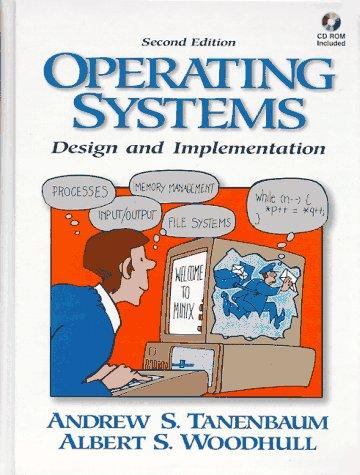Operating Systems: Design and Implementation Review
Operating Systems: Design and Implementation by Andrew S. Tanenbaum and Herbert Bos teaches OS concepts alongside a working codebase (MINIX). It’s theory with source: processes, memory, files, and devices explained, then implemented.
Overview
Core topics: processes, threads, and IPC; scheduling; deadlocks; memory management (paging, segmentation); file systems; I/O and device drivers; security; case study: MINIX3 microkernel architecture and code walkthroughs.
Summary
The text introduces abstractions—process, address space, file—then shows their realization in a small, readable OS. You study message-passing in a microkernel, page management, VFS layers, and driver isolation for reliability. Labs encourage modifying schedulers, file caches, or IPC paths to see trade-offs.
Authors
Tanenbaum (classic explainer) and Bos (systems researcher) combine pedagogical clarity with real implementation detail.
Key Themes
Abstractions backed by mechanisms; reliability via isolation; simplicity as enabler of understanding and change.
Strengths and Weaknesses
Strengths: rare blend of readable code and solid theory; microkernel perspective broadens intuition beyond monolithic Unix. Weaknesses: less focus on Linux-style monolithic kernels, SMP scaling, and modern virtualization—supplement with Linux/bsd sources.
Target Audience
Students and engineers who learn best by reading and modifying an OS, not just discussing one.
Favorite Ideas
Message-passing microkernel; VFS unifying diverse file systems; driver isolation improving robustness.
Takeaways
OS design is a negotiation between simplicity, performance, and reliability. Build small, isolate faults, and verify abstractions by tracing the code that implements them.









